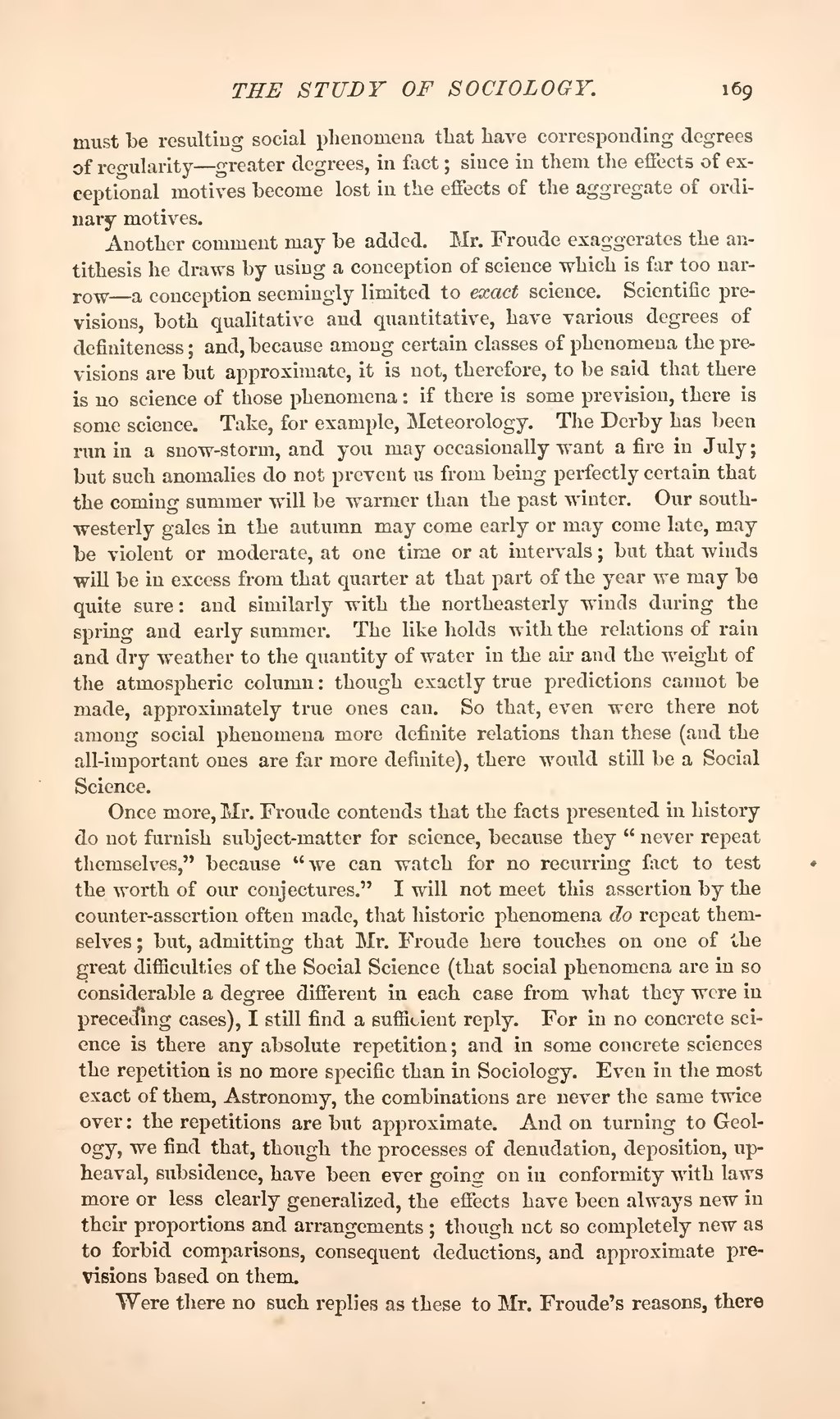must "be resulting social phenomena that have corresponding degrees of regularity—greater degrees, in fact; since in them the effects of exceptional motives become lost in the effects of the aggregate of ordinary motives.
Another comment may be added. Mr. Froude exaggerates the antithesis he draws by using a conception of science which is far too narrow—a conception seemingly limited to exact science. Scientific previsions, both qualitative and quantitative, have various degrees of definiteness; and, because among certain classes of phenomena the previsions are but approximate, it is not, therefore, to be said that there is no science of those phenomena: if there is some prevision, there is some science. Take, for example, Meteorology. The Derby has been run in a snow-storm, and you may occasionally want a fire in July; but such anomalies do not prevent us from being perfectly certain that the coming summer will be warmer than the past winter. Our southwesterly gales in the autumn may come early or may come late, may be violent or moderate, at one time or at intervals; but that winds will be in excess from that quarter at that part of the year we may be quite sure: and similarly with the northeasterly winds during the spring and early summer. The like holds with the relations of rain and dry weather to the quantity of water in the air and the weight of the atmospheric column: though exactly true predictions cannot be made, approximately true ones can. So that, even were there not among social phenomena more definite relations than these (and the all-important ones are far more definite), there would still be a Social Science.
Once more, Mr. Froude contends that the facts presented in history do not furnish subject-matter for science, because they "never repeat themselves," because "we can watch for no recurring fact to test the worth of our conjectures." I will not meet this assertion by the counter-assertion often made, that historic phenomena do repeat themselves; but, admitting that Mr. Froude here touches on one of the great difficulties of the Social Science (that social phenomena are in so considerable a degree different in each case from what they were in preceding cases), I still find a sufficient reply. For in no concrete science is there any absolute repetition; and in some concrete sciences the repetition is no more specific than in Sociology. Even in the most exact of them, Astronomy, the combinations are never the same twice over: the repetitions are but approximate. And on turning to Geology, we find that, though the processes of denudation, deposition, upheaval, subsidence, have been ever going on in conformity with laws more or less clearly generalized, the effects have been always new in their proportions and arrangements; though not so completely new as to forbid comparisons, consequent deductions, and approximate previsions based on them.
Were there no such replies as these to Mr. Froude's reasons, there
